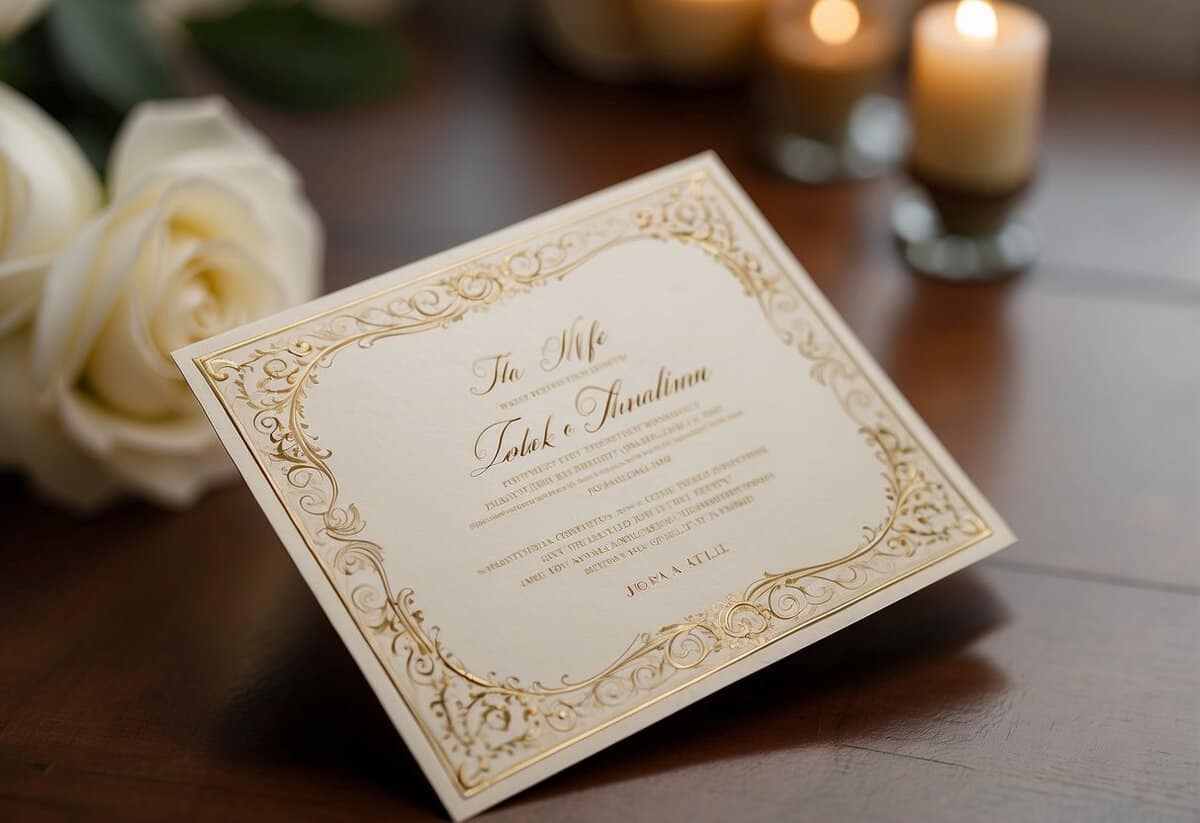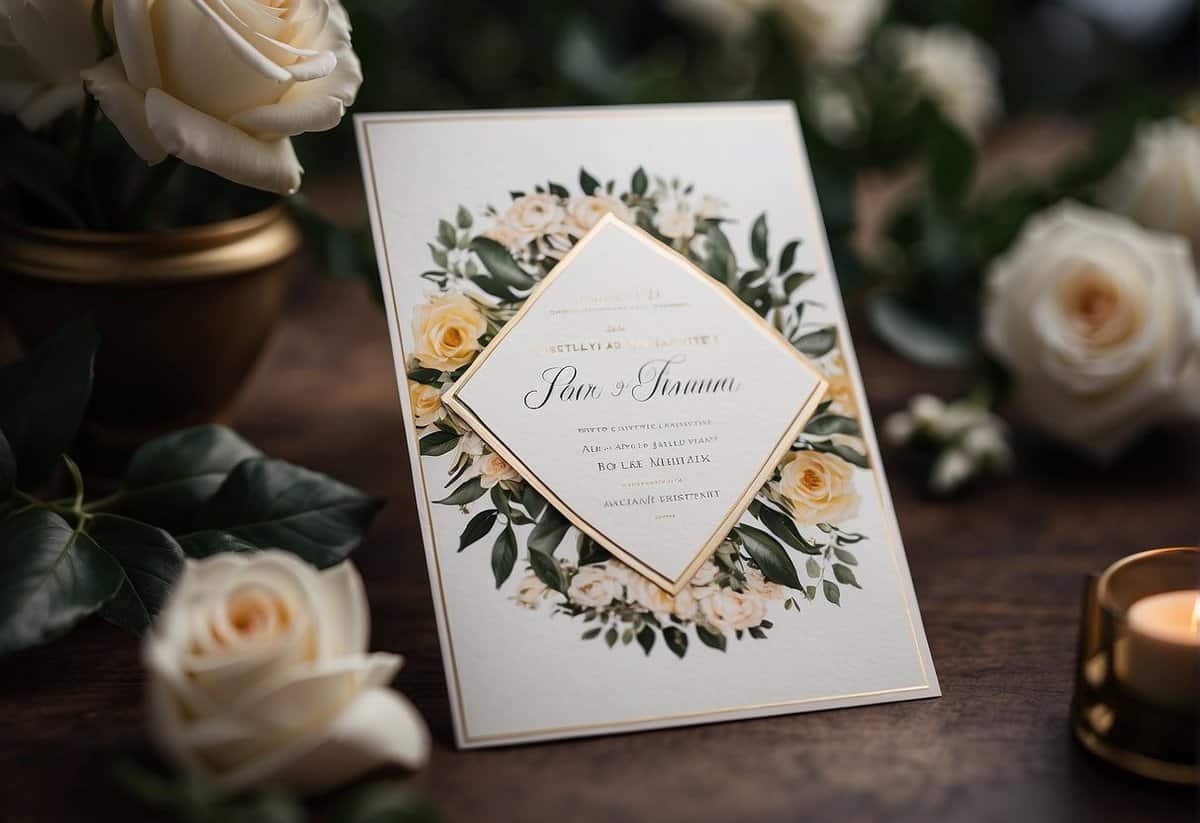Is It Rude to Not Invite a Husband to a Wedding? Understanding Social Etiquette
When planning a wedding, the guest list can be one of the most challenging aspects to navigate. The question of whether to invite a guest’s spouse is a common dilemma faced by couples. Traditional wedding etiquette dictates that spouses should not be separated on such occasions. However, modern trends and the evolving nature of relationships and family structures have influenced this convention. The decision not to invite a husband to a wedding can have implications for both the guest’s experience and the host’s relationships, with several factors such as the intimacy of the event, the venue’s capacity, and the budget playing a role.

Each wedding is unique, and so are its circumstances. It’s important to consider the feelings of your guests when making invitation decisions. Even though the final choice rests with the couple, clear and considerate communication can help in addressing any potential upset caused by non-invitations. An understanding of proper etiquette, the specifics of your wedding plans, and the nature of your relationship with the guests can guide you in making thoughtful decisions that balance tradition and practicality.
Key Takeaways
- Wedding etiquette traditionally includes spouses on the guest list.
- Various factors such as intimacy, venue, and budget influence guest invitations.
- Clear communication is key to maintaining relationships when navigating non-invitations.
Understanding Wedding Etiquette

When planning your wedding, understanding the proper etiquette surrounding your guest list and invitations is essential. Doing so ensures that both you and your guests feel respected and valued on your special day.
Guest List and Invitation Norms
Creating your guest list is one of the most crucial steps in wedding planning. It’s important to be mindful of relationship dynamics and family expectations. Typically, if you’re inviting a wedding guest who is married or in a long-term relationship, it’s expected to invite their spouse or significant other. This shows respect for their partnership and helps your guests feel comfortable at your event.
Importance of Including Significant Others
When sending out invitations, including a guest’s significant other sends a message of warmth and consideration. For married couples or those in established relationships, not receiving a joint invite can seem inconsiderate or even rude. It’s not just about following etiquette; it’s about acknowledging and valuing the couple as a unit, which is especially significant at a celebration centered around love and partnership.
Planning and Budgeting for Guests

As you dive into wedding planning, one of the cornerstones is managing your wedding budget while shaping your guest list. This intersection of finances and social considerations will set the tone for your event, hence why aligning your guest count with your budget is crucial.
Navigating Budget Constraints
When you’re planning your wedding, budget constraints are almost a given. Every couple faces them. It’s vital to work out how much you can realistically spend per guest, considering factors such as venue capacity, catering costs, and additional per-head pricing for drinks, seats, and favours. A practical way to stay within your budget is to categorise your expenses into must-haves and nice-to-haves. This way, you’re clear about where you can trim costs if needed.
| Expense Category | Must-Haves | Nice-to-Haves |
|---|---|---|
| Catering | Food & Drinks | Special Menu Options |
| Seating | Comfortable | Deluxe |
| Venue | Capacity | Luxury Features |
Also, consider whether the presence of a guest adds meaningful value to your day. Invitations to spouses or significant others, such as extending an invite to a husband, may be expected, but it’s acceptable to set limitations if your budget issue is pressing.
Deciding on Guest Count and Invitations
Your guest count directly affects your wedding budget. As you compose your wedding guest list, think about those who are most important to witness your union. Split your guest list into tiers:
- Tier 1: Immediate family and closest friends
- Tier 2: Extended family and good friends
- Tier 3: Acquaintances and plus-ones
Boldly invite Tier 1 guests first, as they’re your non-negotiables. After calculating the costs of their attendance against your budget, move to Tier 2 and then Tier 3 if feasible. This tier system ensures you’re making the best possible use of your budget without overextending.
Remember, clear communication about invitations, especially concerning plus-ones or lack thereof, will help manage expectations and minimize misunderstandings about who is invited, such as a guest’s spouse.
Addressing Non-Invitations

When organizing your special day, it may become necessary to make tough decisions about your guest list, particularly regarding whether to invite both members of a married couple. Let’s explore how you can address these choices with tact and sensitivity.
How to Handle Potential Hurt Feelings
If you decide not to invite someone’s spouse to your wedding, it’s essential to approach the situation with empathy. Begin by having a candid conversation with your guest to explain the situation. Acknowledge that this decision might cause hurt feelings, but be honest about your reasons, whether it’s budget constraints or venue limitations. If the individual is a close family member or friend, stress that their presence is significant to you, and your decision is not an oversight or a reflection of your feelings towards their spouse.
- Be Direct: “I wanted to talk to you personally because you mean a lot to me…”
- Be Compassionate: “…and I understand this might be disappointing.”
Alternative Arrangements
If you’re not inviting spouses to the ceremony due to constraints but would like to include them in the celebrations, consider hosting a second reception or casual gathering after your wedding day. This way, you can celebrate with extended friends and family members without the formalities and cost of the main event. When proposing this idea, ensure that your guest understands this is an effort to include everyone in a manner that works with your situation.
- Informal Gatherings: You could say, “We’re planning a casual get-together later on, and we would love for you and your husband to join us then.”
- Secondary Celebrations: “Having a second reception allows us to include everyone in our happiness, even if we can’t all be at the ceremony.”
Communication and Relationships

When deciding whether to invite a spouse to a wedding, communication with your guests is key. It’s essential to consider how your decisions affect friendships and ongoing relationships.
Having Honest Conversations
If you’re considering not inviting someone’s spouse to your wedding, having an honest conversation with your guest is vital. You should clearly express your reasoning, whether it’s budget constraints or limited venue space. This openness helps to prevent misunderstandings and provides a platform for your guest to share their feelings. Remember that they might feel confused or upset, and acknowledging these feelings is important for maintaining a good relationship.
Maintaining Friendships After the Wedding
The decisions you make regarding invitations can have long-term effects on your friendships. It’s important to consider how not inviting someone’s spouse may affect your friendship after the wedding festivities are over. Even if they do end up attending without their significant other, ensure that you take steps to remain inclusive and considerate in your actions. Continue to foster the friendship by reaching out and spending time together, showing that your decision wasn’t indicative of your feelings toward their significant other.
Frequently Asked Questions

When planning your wedding, you’ll face many decisions, including the delicate matter of your guest list. Here are answers to some common questions about wedding invitation etiquette regarding couples.
How should you decide whether to invite both spouses to a wedding?
To determine whether to invite both spouses, consider the nature of your relationship with the couple and the formality of your wedding. Traditional wedding etiquette suggests including both parties in a formal invitation, especially if you have a connection with both individuals.
What is the etiquette on inviting one half of a couple to a wedding?
The etiquette surrounding inviting one half of a couple typically leans towards inviting both members, especially for married or long-term partners. If you need to restrict numbers, clearly communicate this and be consistent with all guests.
How can you politely inform someone that their partner is not invited to your wedding?
To inform someone that their partner is not invited, send a personal message or have a direct conversation explaining the reason, such as limited space or budget constraints. Ensure your explanation is gentle and sincere to prevent hurt feelings.
Are there justifiable reasons not to invite certain guests to a wedding?
Justifiable reasons for not inviting certain guests, like avoiding potential drama or budgetary constraints, are understandable. It’s your day, and making a guest list that reflects your wishes and the atmosphere you want to achieve is crucial.
How can you handle not being invited to a wedding with your significant other?
If you’re not invited to a wedding with your significant other, acknowledge your feelings but try to understand the couple’s situation. Be supportive of your partner’s attendance and respect the couple’s decision.
Should feelings of guilt influence wedding invitations, especially regarding not inviting plus-ones?
While it’s natural to feel guilty about limiting wedding invitations, your decision should not be swayed solely by guilt. Be considerate and think through your options, but remember, it’s important to stick to your budget and vision for your special day.

